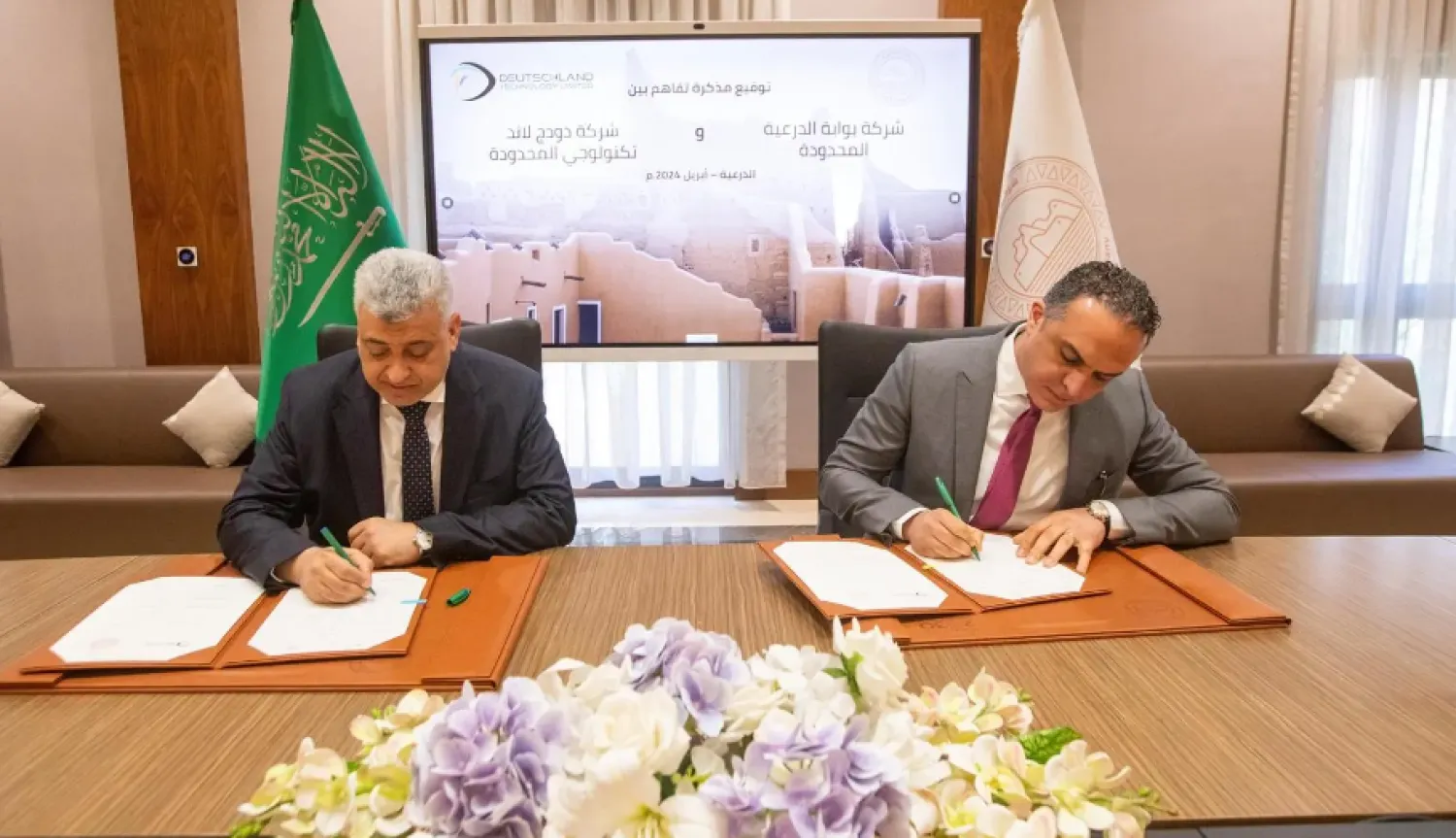Diriyah Company said it has entered into a memorandum of understanding (MoU) with Deutschland Technology to enhance fire safety standards and procedures across various development projects, including heritage sites, tourism, and cultural destinations in Diriyah.
This collaboration addresses construction and development challenges while aligning with the Kingdom's Vision 2030 goals, according to a press release issued by the company on Sunday.
"The MoU underscores Diriyah Company's commitment to consistently improve safety best practices, prioritizing the highest protection standards," the statement said.
According to the release, in recent years, Diriyah Company has achieved significant safety milestones, such as receiving approval from TUV Austria, an international accreditation authority specializing in testing, inspection, conformity, and quality assurance. This recognition affirms that Diriyah Company's occupational health and safety management system meets ISO 45001 standards.
Diriyah Company GCEO Jerry Inzerillo said: "This is a significant moment for our development projects as Diriyah is committed to the most stringent health and safety standards, and we look forward to enhancing them further through this agreement with Deutschland Technology's capabilities and expertise in fire safety."
The MoU involves training, information sharing, studies, research, and staying updated on the latest developments in fire safety. Additionally, it includes leveraging Deutschland Technology's expertise in research and development to create innovative solutions for enhanced protection.
The partnership aims to deliver tangible outcomes that will positively impact the community in accordance with Diriyah Company's established mechanisms and systems. It focuses on enhancing the capabilities and skills of management and employees in emergency response and fire prevention. The collaboration will also extend to volunteer initiatives within the Diriyah community, including workshops on fire safety education designed to raise awareness among residents about fire safety measures and practices, inspiring a safer and more secure community.
The signing of the MoU is part of Diriyah Company's policies aimed at developing Diriyah, a city of immense historical significance as one of the most prominent historical sites in Saudi Arabia and the capital of the First Saudi State.
Diriyah Company is dedicated to showcasing the city's rich history and cultural heritage through careful urban planning and vibrant cultural initiatives. It aims to provide a unique and enriching experience by collaborating closely with governmental and private entities. Diriyah strives to serve the community, promote development, and contribute to cultural and economic progress.
With over 20 years of expertise in fire safety and 12 branches worldwide, Deutschland Technology perfectly aligns with Diriyah Company's unwavering commitment to safety. The development and implementation of an occupational health and safety management system across Diriyah upholds international standards and ensures ongoing compliance. This strategy gives stakeholders, employees, and partners confidence in Diriyah Company's dedication to maintaining the highest safety standards in all its operations.
Diriyah Company Signs MoU with Deutschland Technology to Elevate Safety Standards in Development Projects

The signing of the MoU is part of Diriyah Company's policies aimed at developing Diriyah - SPA

Diriyah Company Signs MoU with Deutschland Technology to Elevate Safety Standards in Development Projects

The signing of the MoU is part of Diriyah Company's policies aimed at developing Diriyah - SPA
لم تشترك بعد
انشئ حساباً خاصاً بك لتحصل على أخبار مخصصة لك ولتتمتع بخاصية حفظ المقالات وتتلقى نشراتنا البريدية المتنوعة







